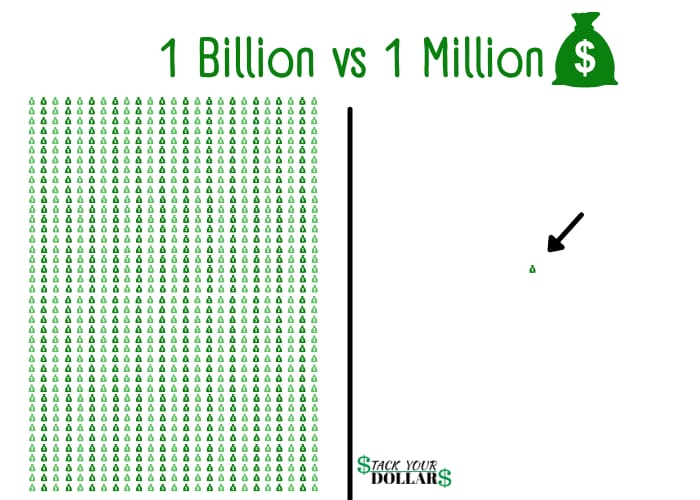When we hear the terms "million" and "billion," we often think of large amounts of money or numbers. However, do we really know the difference between these two terms? Let's explore the definition and comparison of one million and one billion.
What is One Million?

One million is a number that represents 1,000,000. This number is often used in financial contexts to describe large sums of money, such as salaries, inheritances, or investments. For example, if someone earns a salary of $1 million per year, it means that they make $1,000,000 annually.
Another way to understand one million is to break it down into smaller units. One million is equal to:
- 1,000 thousands
- 100 hundreds of thousands
- 10 tens of thousands
What is One Billion?

One billion is a number that represents 1,000,000,000. This number is much larger than one million and is often used to describe massive amounts of money or numbers, such as the population of a country or the revenue of a company. For example, if a company's revenue is $1 billion, it means they have earned $1,000,000,000 in total.
Breaking down one billion into smaller units can be helpful in understanding the scale of this number. One billion is equal to:
- 1,000 millions
- 100 thousands of millions
- 10 tens of thousands of millions
Comparison Between One Million and One Billion

One million and one billion are vastly different numbers. The magnitude of the difference can be seen when we compare the two numbers. One billion is 1,000 times larger than one million. This means that one billion is equal to 1,000 million.
For example, if we were to compare the wealth of two people, one with $1 million and the other with $1 billion, we would see a huge difference. The person with $1 billion would have 1,000 times more money than the person with $1 million.
Examples of One Million and One Billion

One million and one billion are often used in different contexts. Here are some examples:
- One million dollars can buy a luxury home in some areas of the United States, while one billion dollars can buy a private island or a professional sports team.
- One million people can fill a large stadium, while one billion people can populate an entire continent, such as Africa.
- One million seconds is equivalent to 11.6 days, while one billion seconds is equivalent to 31.7 years.
Conclusion
In conclusion, one million and one billion are two vastly different numbers that are often used in financial and numerical contexts. While one million represents a large sum of money or number, one billion is much larger and represents a massive amount of money or number. Understanding the difference between these two numbers can help us comprehend the scale of different values and quantities.